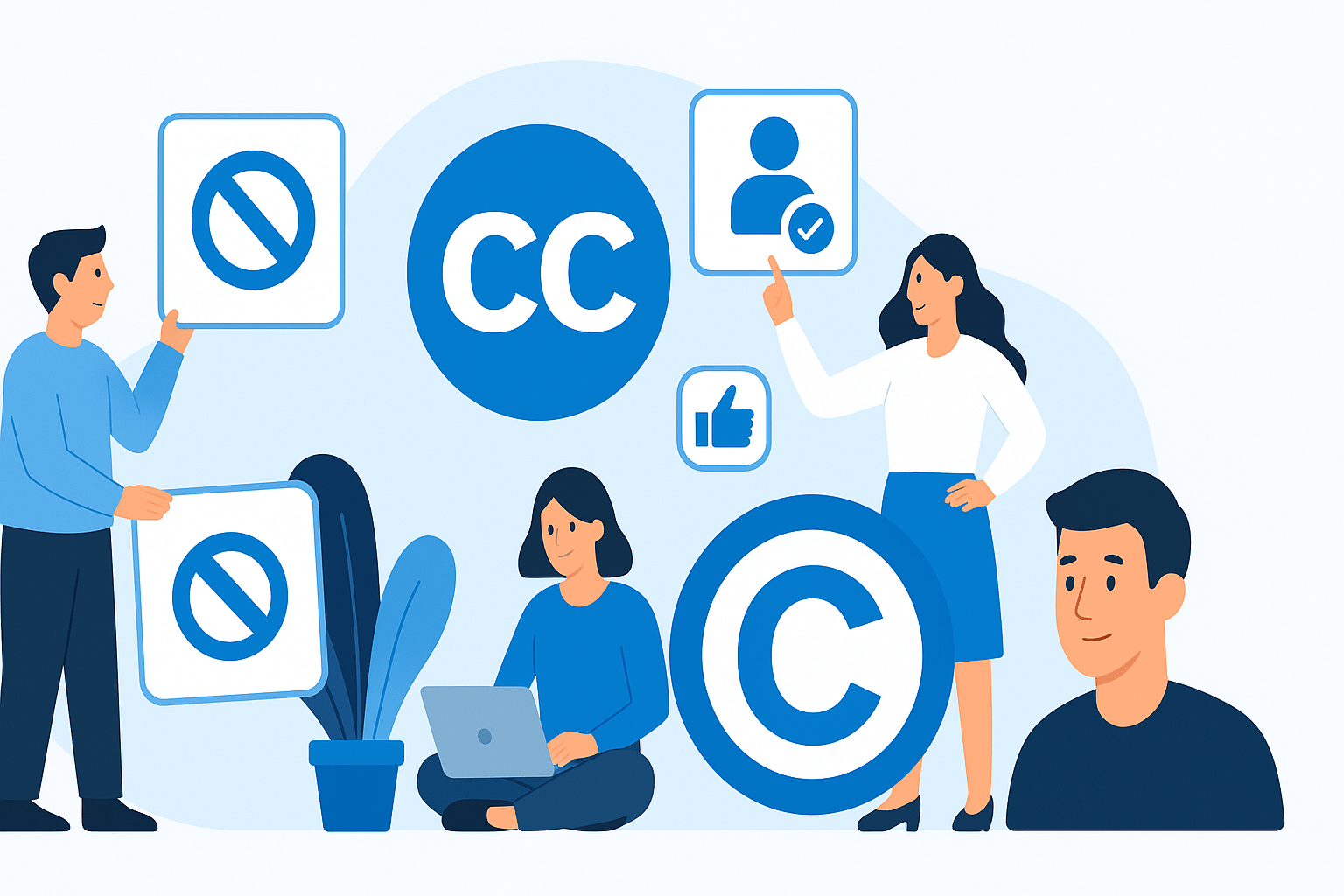
Combine the strength of CZone blockchain certification with Creative Commons licenses. Certify your authorship and decide how others can use your work.
Creative Commons (CC) is a globally recognized licensing system that allows authors to decide in advance how their works may be used by others.
Unlike traditional copyright, which reserves “all rights” by default, Creative Commons is about “some rights reserved”.
With copyright, you automatically become the author and rights holder the moment your work is created.
With Creative Commons, you keep your authorship but grant permissions for use, such as sharing, remixing, or using for educational purposes.
👉 The key point: a Creative Commons license never replaces copyright. You are always the author. The license simply tells others what they can or cannot do with your work.
It communicates usage rules, but it does not prove authorship.
If someone claims your work as their own, a CC license will not be enough to defend you.
This is where CZone by LutinX makes the difference.
Register your work on blockchain with a legal timestamp.
Receive a certificate of authorship with an immutable blockchain ID.
Secure your work against plagiarism and unauthorized claims.
Blockchain proof of authorship.
Clear usage rights for third parties.
👉 Tip: Together, they provide the strongest framework for protecting your work and responsibly sharing it worldwide.
On the metadata screen, you will see options such as:
Deny any use
Creative Commons – Allow Remixing
Creative Commons – Allow Remixing + Require Share Alike
Creative Commons – Prohibit Commercial Use
Public Domain
Simply select the license that best matches your intentions.
👉 Example:
If you want your work shared freely but not for profit → choose CC BY-NC.
If you want to keep full control → choose Deny any use.
If you want maximum openness → choose Public Domain.
This license is then attached to your blockchain certificate and visible to anyone who scans your QR code or downloads your PDF.
No authorship proof: anyone could still claim to be the creator.
No timestamp evidence: you cannot prove when the work existed.
No immutability: licenses can be altered or ignored by bad actors.
Your file is immutably recorded on blockchain.
You get a verifiable certificate recognized worldwide.
Creative Commons becomes a complement to your legal proof, not a substitute.
Creative Commons licenses are an excellent tool to share knowledge and creativity. They let you decide the level of openness for your work.
But for true protection, they need to be combined with CZone notarization.
CZone proves your authorship.
Creative Commons defines how others can use your work.
👉 With this combination, you can protect, share, and grow your creations with confidence.